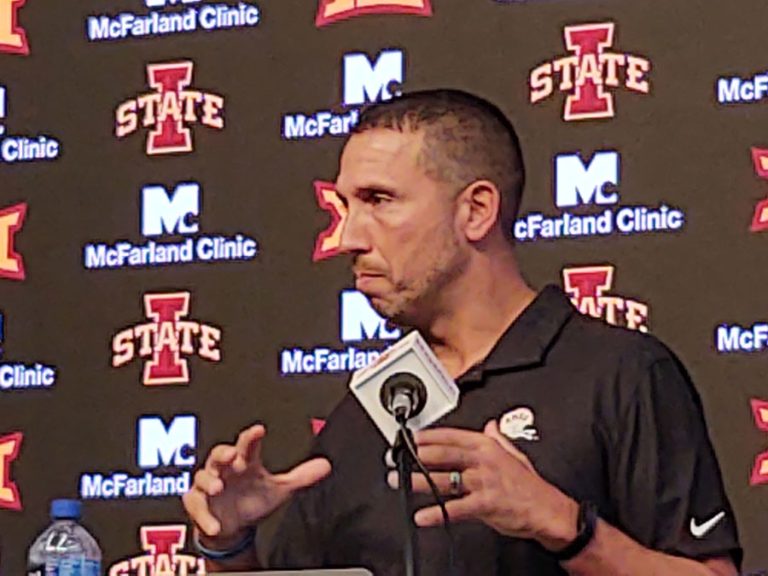IARN — Early signs of disruption to meat processing facilities appeared a couple weeks ago.
Only a couple plants shuttered their doors, and “the number of packing plants that had closed were relative to the number of plants,” according to Dermot Hayes, economist at Iowa State University.
The situation has since worsened, and rather quickly.
Trent Thiele finishes pigs near Elma, Iowa. Piglets start off at 14 pounds. They quickly become full grown hogs, weighing between 280 to 290 pounds at time of slaughter. Few pigs have left Thiele’s 38,000 hog operation, due to plant slow downs.
“Our packing plants – We have a commitment to provide them eight loads a week. Eight loads a week regardless of what the weight is,” Thiele said. “They need that commitment, so they have consistency on their line, work for their employees, and pork to go out of the plant. Our buyer told us we can only ship one (load) this week. Last week we were down to three. Next week, we don’t if we can ship any out,” Thiele said.
Thiele must also uphold his commitment to a sow farm, which brings pigs to his operation each week. He stresses the importance of consistency throughout his business.
“If we lose that, it gets inconsistent. Then the health of the pigs gets compromised. We need to keep the chain going: From the sow farm, to the nursery, to the finishing, to the packing plant, and all the way to the meat counter,” Thiele said.
Thiele now looks to outdoor lots to manage full grown hogs.
“We want to keep the pigs, if we can manage that without having to euthanize them and waste the meat product,” Thiele said. “We want to get that meat product to our end consumer in the best shape we possibly can.”
Other swine operations are “in worse shape,” according to Thiele. Tomorrow we will offer additional insight into these cases.
Story courtesy of the Iowa Agribusiness Radio Network.












